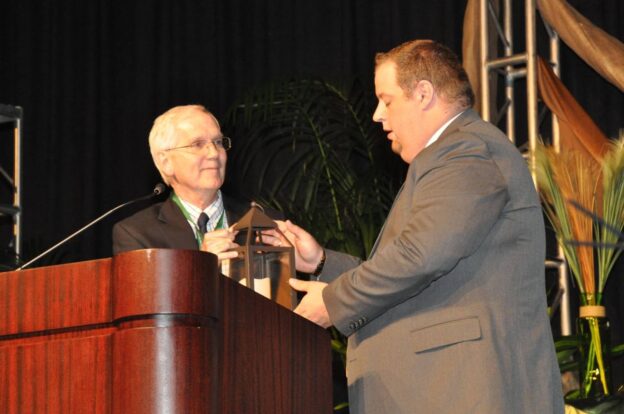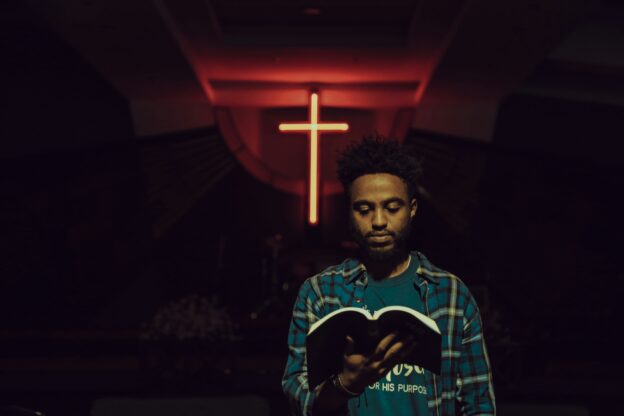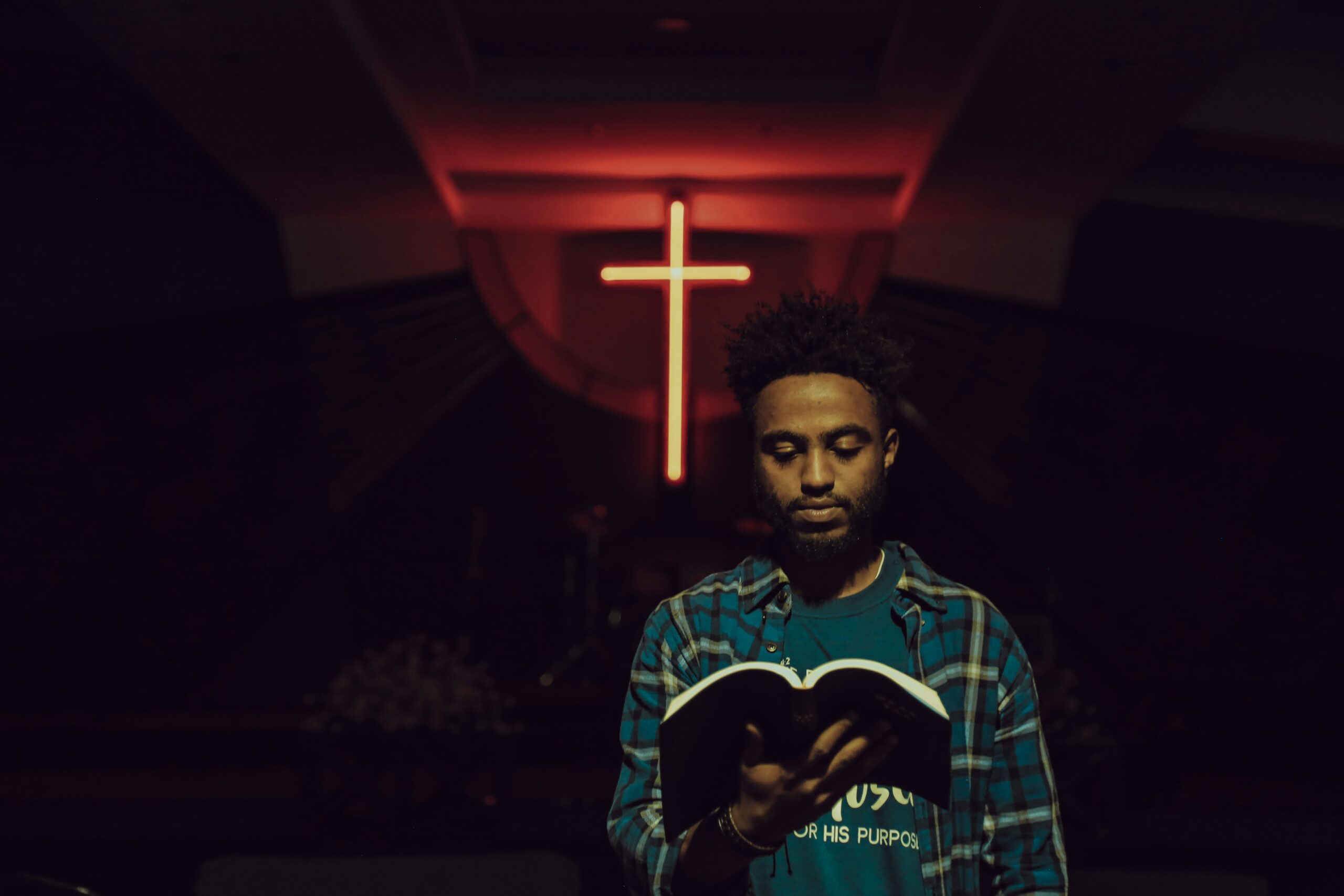At our church, we’re spending time in the book of Nehemiah and learning how it is that amazing things happen. So far, we’ve explored how amazing things happen when we pray, when we plan, and when we work together. Consider with me now how amazing things happen when we overcome antagonism.
Let’s quickly recap the context of the book of Nehemiah. The historical context of this story is the fifth century B.C. About 100 years before, the Babylonians conquered and destroyed Jerusalem. The walls and the city were left in rubble, the Temple was sacked and burned, and many people were taken as slaves. However, over the years, some were allowed to return – only to discover the city was still destroyed and deserted. It was a terrible reality of sadness, loss, and anger.
Nehemiah had never been to Jerusalem, but when he heard reports of its condition, he requested that the Persian king (who he served as cupbearer) allow him to go back to the city of his ancestors, in order to rebuild it. Nehemiah prayed for months and put together a plan, so when he made his request, he was ready to go. Once he arrived at Jerusalem, he surveyed the land and city and called on the people to unite in the work.
The Eroding Effects of Antagonism in Nehemiah
In Nehemiah 4, things start to get more complicated for Nehemiah and the people. They began to experience powerful antagonism against their work. This is what happened:
Now when Sanballat heard that we were building the wall, he was angry and greatly enraged, and he mocked the Jews. He said in the presence of his associates and of the army of Samaria, “What are these feeble Jews doing? Will they restore things? Will they sacrifice? Will they finish it in a day? Will they revive the stones out of the heaps of rubbish—and burned ones at that?” Tobiah the Ammonite was beside him, and he said, “That stone wall they are building—any fox going up on it would break it down!” (Nehemiah 4:1-3)
These two men, Sanballat and Tobiah, apparently were not happy but deeply disturbed when they heard the wall of Jerusalem was being rebuilt. They were so aggravated that they were described as “angry” and “greatly enraged.”
The rebuilding of Jerusalem was an offense to them, so they tried to stop the work through intimidation and mockery. They began to call Nehemiah and the rest of the people “feeble Jews,” mocking their beliefs to discourage them so they would stop the work. Take a look at the questions they raised to make Nehemiah and the others doubt themselves:
“What are these feeble Jews doing? Will they fortify themselves? Will they offer sacrifices? Will they complete it in a day? Will they revive the stones from the heaps of rubbish; stones that are burned?”
Their purpose in asking these questions was to mock the people and cast doubt on the project by ridiculing their efforts and faith. Sanballat and Tobiah were trying to make them second-guess themselves and their aspirations. They attacked their capacities and their faith by basically saying, “What you are doing is pointless and wrong because you are wrong and your ideas are bad”!
Still: the work did not stop, and the walls of Jerusalem continued to be rebuilt as the gaps were closed. However, this triggered a threat of violence against the Jews. In verse 8, it says that, “they were very angry, and all plotted together to come and fight against Jerusalem and to cause confusion in it.”
What is this, if not an insidious attempt to discourage them from doing what they knew in their hearts was right, what they knew was God’s purpose?
The Eroding Effects of Antagonism in Your Life
Have you ever experienced anything similar? Maybe a family member, friend, or someone else bullied you into stopping by causing you to doubt yourself or your abilities? What happened to you? Did you get discouraged, doubt yourself, and stop the work?
What a shame it is when people you may know choose to act this way against those who are trying to do good. That is exactly what is happening here. Sanballat and Tobiah are powerful antagonistic figures in this story. They are evil critics who bring nothing but discouragement to those working for a good cause. Whether they were moved by jealousy or hate, their goal was to stop the construction of the wall.
When the Strong Ones Fall
Sometimes, no matter how strong and confident you are in what you are doing, everyone is susceptible to discouragement. Even as the people had a plan and were working together with one mind, some of them began to lose heart.“Then Judah said, “The strength of the laborers is failing, and there is so much rubbish that we are not able to build the wall.” (Neh. 4:10)
Did you notice what they said? “We can’t rebuild the wall.” In addition to the opposition they were facing, the work was difficult and logistically complex (“so much rubbish”), and they were getting tired and discouraged.
This was a disturbing development. Judah was supposed to be the strongest and bravest tribe. Historically, it was the tribe of kings. So hearing that workers from the tribe of Judah were getting discouraged and tired meant a major challenge and potentially a catastrophic blow to their work. If the strongest among them was beginning to lose faith and confidence in their capacity to do the work, everyone else would follow.
That was the most dangerous moment, because the only thing that could really stop the work was if the people lost confidence in each other. This was not a battle against blood and flesh; it was one in their minds and hearts.
How Nehemiah Countered Antagonism
So what happened? Did they stop? After hearing Judah was about to give up, this what happened next:
“After I [Nehemiah] looked these things over, I stood up and said to the nobles and the officials and the rest of the people, ‘Do not be afraid of them. Remember the Lord, who is great and awesome, and fight for your kin, your sons, your daughters, your wives, and your homes.’” (Neh. 4:14)
Nehemiah reminded them of the “why” of their work: that they were rebuilding for their families and each other. Nehemiah put their minds and hearts back together by telling them, “Remember the Lord, who is great and awesome.” He did not deny the reality of the challenges they were facing but reminded them of their faith and why they were rebuilding.
After this, an amazing thing happened: the hostile plots against them were thwarted, and their enemies shrank back. All this time, their enemies didn’t really have the power to stop the work; that is why they used intimidation. So once the people recovered their faith, stayed together, and remembered their purpose, they overcame the antagonism. Their victory was less about defeating their enemies and much more about not losing themselves.
Do you see what is happening here? Just as the threats made them doubt and forget their purpose, remembering their faith and the gift of rebuilding the wall united them and reminded them of who they were.
My friends, we can’t overcome challenges and enemies if we forget who we are and what we are fighting for. We can’t overcome our challenges if we let fear and discouragement rearrange our minds and hearts to doubt ourselves and forget God. We can’t overcome antagonism if we give up on our work.
How to Overcome Antagonism through Nehemiah’s Example
Learning from Nehemiah, what do we do to overcome antagonism, then?
First, we need to ask for help when we are threatened by discouragement and fear. Since chapter one, we see Nehemiah seeking God and asking for help through prayer. When his enemies were mocking and threatening them with violence, he did little to engage them. Instead, he talked to God to stay focused.
This means prayer is sometimes less about what we ask for and more about what happens to us when we pray. Prayer gives peace and clarity of thought to see what is happening and we need to do about it. What are the challenges you are facing right now? Talk to God about them; pray. Start by telling God what you want, what you need, to say, and then ask for help. You will begin to see the power of prayer in your life.
Second, to overcome antagonism, we need to reorganize our priorities. As we pray, we get new insights in order to do what we need to do. This is what Nehemiah did when he acted promptly to protect the people as the threat was increasing.
For example, in 4:13, Nehemiah “stationed the people according to their families, with their swords, their spears, and their bows.” They were rebuilding the wall, but they were also ready to fight back if their enemies attacked them. This “reorganizing” discouraged the enemy from attacking them, and it encouraged the people, because they knew they could defend themselves if they needed to.
For you, this may be about reorganizing your life and what matters to you. It can be a difficult practice; changing behaviors, long-held ideas, or even shaping your own character requires focused commitment in order to change the direction of your life. But once you reorganize priorities, things begin to fall into place. If anything, antagonism can then make you stronger, because it has bolstered your strengths and capacities and forced you to make hard, long-overdue changes you need. This is what we call “growth.”
The final thing to overcome antagonism is not to forget God is in your life. When the people were close to giving up, Nehemiah reminded the workers, “Do not be afraid of them. Remember the Lord.”
Even in the face of opposition, Nehemiah knew the success of the wall depended on people not forgetting their faith. He reminded them God was with them. This was not only a source of security; it was also a source of inspiration: “God is with us, and we will rebuild our homes!”
This is good news! Greater is the One who is with us than anyone who is against us! God is always with us and will never leave us!
Instead of focusing on the threats of the enemy and the negative voices from outside or within, remember God’s words, God’s goodness, and God’s power. Recall all the things God has already accomplished as well as God’s promises of what is yet to come.
So don’t let antagonistic voices take away your life, dreams, and confidence in the gifts God has given you. Don’t let the antagonists take over you. Their threats are worthless and powerless against your faith and the presence of God in you.
Whatever problems and challenges you have today, know this:
- You can ask for help; you can pray
- You can change your direction by reorganizing your priorities and allowing yourself to grow.
- Most importantly, you can remember God is in your life. Since before you were born, God has been with you, and never left.
Remember God. It will help you remember who you are and what you need to do.
Featured image courtesy Matthias Groeneveld via Pexels




















